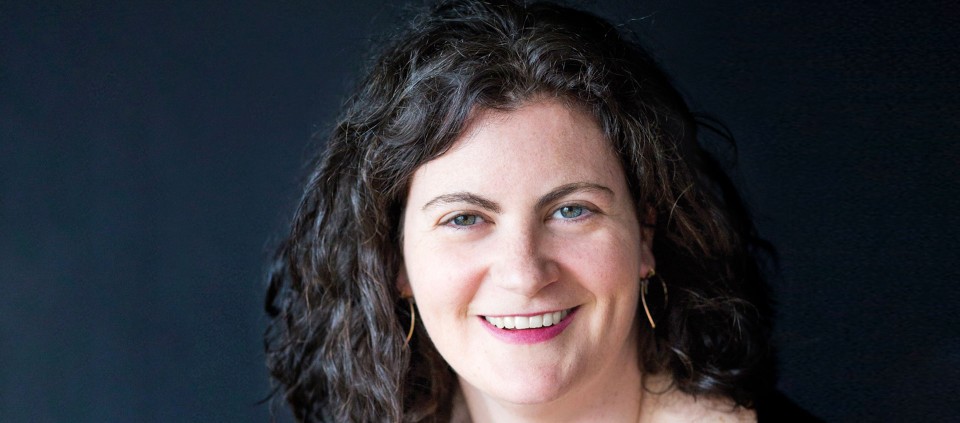Writing as a Tool for Healing Trauma, with Nellie Hermann

StoryFlow is a series featuring original conversations with Kripalu presenter Lisa Weinert and visionary doctors, writers, yogis, and spiritual leaders about the role of storytelling in their healing and caregiving processes.
Nellie Hermann is an award-winning novelist, creative director of the Program in Narrative Medicine at Columbia University, and currently a fellow at the Institute for Ideas and Imagination in Paris, France. Lisa spoke with Nellie recently about fiction versus nonfiction, her writing process, and how writing works as a healing agent.
What writers and thinkers have influenced your work most?
The answer to this question is continually changing! The writing of Bernard Malamud had a profound effect on me as a young person. Lately, I’ve been reading Annie Ernaux, who is blowing me away, and have also been loving the work of Rachel Ingalls and Deborah Levy, who is a fellow here in Paris with me. Because I’m in Paris, I’ve especially been loving reading Mavis Gallant and Georges Perec.
How has writing served as a healing agent in your own development?
Writing has always been my way of processing what happens. When difficult things happened in my family while I was growing up—namely the severe illnesses of three family members and the death of two—for many years, it was only in writing that I processed the trauma and loss. It was writing my first novel, The Cure for Grief, and struggling through all the questions about how to turn the real story into a fictional one, that really changed my relationship to my own grief and pain—not that it cured these things or made them go away, mind you, but the process was profound, and it changed me as a writer and as a person. It is really this work that brought me most deeply to the work of narrative medicine, and to what I teach about today.
What is the difference in your mind between writing fiction and nonfiction, from the point of view of narrative medicine and also from the point of view of the writer?
I have written nonfiction, but for me it was when I wrote most creatively—in fiction, or occasionally in poetry—that I felt that the grief and pain was moving or transforming in me. There is something about the act of creating a container for the pain, representing it, so that it transforms into something else that lives outside of you and can then be held away from you, looked at and examined. That is where the power lies when it comes to the healing aspect of the work. I think this can work in a three-minute writing exercise, but it can be profound in a long-form work. I don’t think it really matters whether it’s nonfiction or fiction. For me, fiction has always been a bit more liberating but that is certainly not so for everyone. It is really about the container, rather than about the truth of what is being contained. Giving the story or the experience or the emotion a form and a structure, however strange and oblique, is the act that helps us to get it outside of our body.
Do you have a personal practice around your writing process—things you do every morning, or conditions you need to write?
My process is still very undefined—too much so for my taste much of the time. The elements that I know I need are time, quiet, and other books to read. Reading is such an important part of the process of writing for me; I need to fill myself up with the work of other writers to even begin to see a way forward for myself. Then, at a certain point, mysteriously, it begins to come.
Find out about programs with Lisa Weinert at Kripalu.
Find out about programs with Nellie Hermann at Kripalu.
© Kripalu Center for Yoga & Health. All rights reserved. To request permission to reprint, please email editor@kripalu.org.
Lisa Weinert, RYT-200, is the founder of Narrative Healing™, a mindfulness-based somatic approach to storytelling, and a book coach for entrepreneurs, leaders, and memoir writers.
Full Bio and Programs